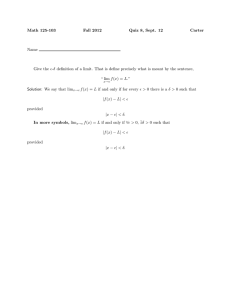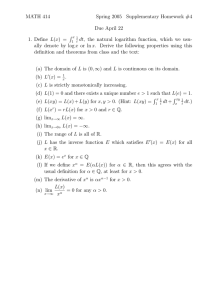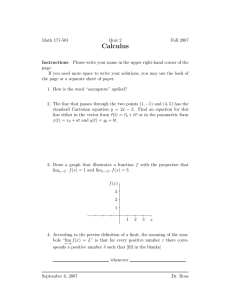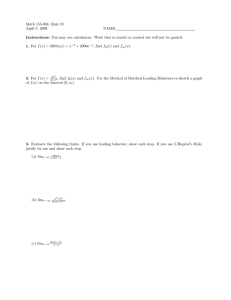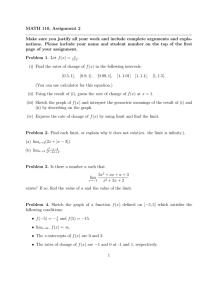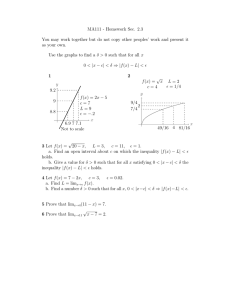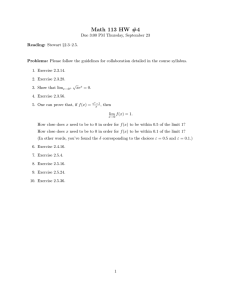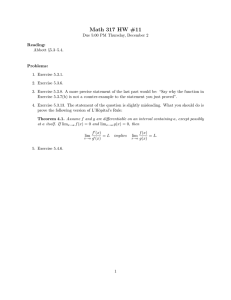Section 4 -limits
advertisement
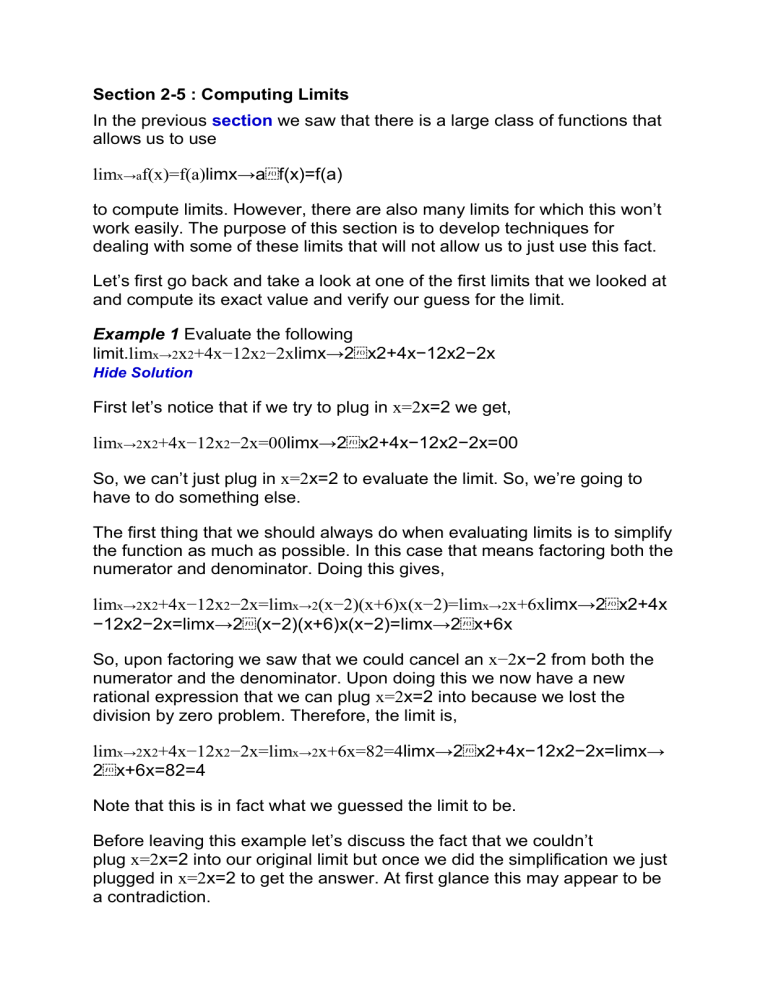
Section 2-5 : Computing Limits In the previous section we saw that there is a large class of functions that allows us to use limx→af(x)=f(a)limx→af(x)=f(a) to compute limits. However, there are also many limits for which this won’t work easily. The purpose of this section is to develop techniques for dealing with some of these limits that will not allow us to just use this fact. Let’s first go back and take a look at one of the first limits that we looked at and compute its exact value and verify our guess for the limit. Example 1 Evaluate the following limit.limx→2x2+4x−12x2−2xlimx→2x2+4x−12x2−2x Hide Solution First let’s notice that if we try to plug in x=2x=2 we get, limx→2x2+4x−12x2−2x=00limx→2x2+4x−12x2−2x=00 So, we can’t just plug in x=2x=2 to evaluate the limit. So, we’re going to have to do something else. The first thing that we should always do when evaluating limits is to simplify the function as much as possible. In this case that means factoring both the numerator and denominator. Doing this gives, limx→2x2+4x−12x2−2x=limx→2(x−2)(x+6)x(x−2)=limx→2x+6xlimx→2x2+4x −12x2−2x=limx→2(x−2)(x+6)x(x−2)=limx→2x+6x So, upon factoring we saw that we could cancel an x−2x−2 from both the numerator and the denominator. Upon doing this we now have a new rational expression that we can plug x=2x=2 into because we lost the division by zero problem. Therefore, the limit is, limx→2x2+4x−12x2−2x=limx→2x+6x=82=4limx→2x2+4x−12x2−2x=limx→ 2x+6x=82=4 Note that this is in fact what we guessed the limit to be. Before leaving this example let’s discuss the fact that we couldn’t plug x=2x=2 into our original limit but once we did the simplification we just plugged in x=2x=2 to get the answer. At first glance this may appear to be a contradiction. In the original limit we couldn’t plug in x=2x=2 because that gave us the 0/0 situation that we couldn’t do anything with. Upon doing the simplification we can note that, x2+4x−12x2−2x=x+6xprovided x≠2x2+4x−12x2−2x=x+6xprovided x≠2 In other words, the two equations give identical values except at x=2x=2 and because limits are only concerned with that is going on around the point x=2x=2 the limit of the two equations will be equal. More importantly, in the simplified version we get a “nice enough” equation and so what is happening around x=2x=2 is identical to what is happening at x=2x=2. We can therefore take the limit of the simplified version simply by plugging in x=2x=2 even though we couldn’t plug x=2x=2 into the original equation and the value of the limit of the simplified equation will be the same as the limit of the original equation.
